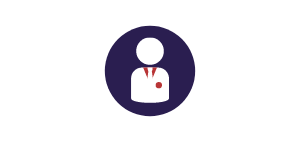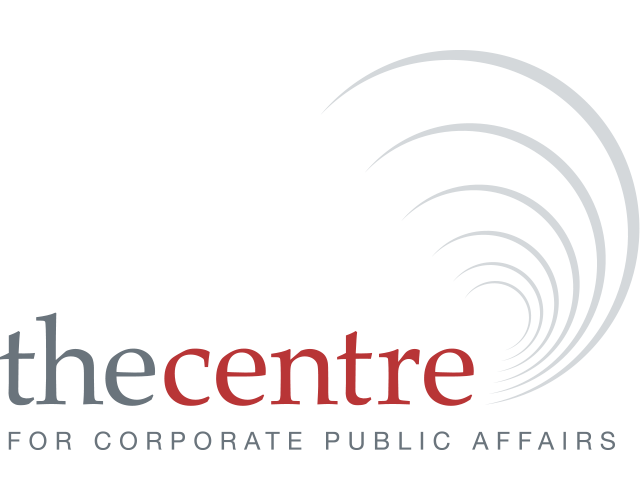Global Best Practice Organisational Communications Certificate Course 2025
This course provides the intellectual framework for best practice of internal communications in corporate settings, and focuses also on hands-on and practical application of best practice.
Designed for practitioners in internal communications, corporate public affairs, and human resources

Self-paced learning, interactive group webinars and syndicate group work

Delivered by Centre Faculty, and Guest Faculty comprising heads of internal communications from leading organisations

Centre for Corporate Public Affairs certificate on completion
Course modules and weekly program
1
Introduction to the Course and Orientation: Via a live webinar this module introduces you to the course, its components, assessment vehicles, how to track your progress, and the group syndicate work.
2
Workplace Anthropology & Sociology: Learn about the role of workplaces to meet social and psychological needs of people, the environments in which different people work best, and how employees perceive and understand their role in organisations.
Psychology of Communication & Semiotics: Examine how meaning is created and communicated. Why heuristics is so important to communications and messaging in organisations. Learn how people react to different modes and tones of communication, and why.
3
Organisation Communication and Issues & Crisis Management: Interrogate the centrality of internal communications to effective management of issues and crises. What best practice looks like. Examine internal communications leadership in managing significant issues and crises.
4
Organisation Communication & Stakeholder Engagement: Consider the role of organisational communications in the modern stakeholder corporation. Examine the role of communications and culture in the stakeholder engagement value chain. Explore what inputs are required from internal communications practitioners to realise effective stakeholder engagement by the organisation.
5
Stewarding the Corporate Narrative & Storytelling: Explore the ‘Ten Commandments’ of a compelling corporate narrative and best practice stewarding the narrative and bringing it to life via storytelling across all levels of the organisation.
6
Leadership Communications: Establish the organisational need and role of communication in leadership, and how effective leaders use communications to lead effectively, and with purpose. Interrogate what best practice looks like.
7
Change Communications: Examine the role of organisational communications in significant change projects, and identify best practice. Examine the elements of why big change projects and efforts (including transformations, M&As, and integrations) fail, including the role of organisational communications. Interrogate the inputs, outputs, and characteristics of best practice change communications.
8
Co-producing outcomes with management disciplines. Research & Strategy: How to use research and strategy to align organisational communications focus and execution with the broader goals of the organisation. Examine how to maximise effective of outputs and outcomes co-produced with other management functions and disciplines, including HR and corporate public affairs.
9
The Role of the Practitioner: Via a live webinar with your course peers examine the role of the organisational communications practitioners in contemporary entities including the attributes and capabilities of the most effective and successful practitioners. Examine the role of professional development in career advancement and/or success.
10
New Horizons for the Organisational Communications Discipline: Examine where the discipline is heading, senior management and Board expectations of the discipline, and what is ‘coming down the pipe’ for practitioners and the way they work.
Course timetable and logistics
The course is conducted over ten weeks and will commence in the week beginning 24 February 2025. Taking into account the Easter holiday break, it will conclude in the week of 12 May 2025. Delivered via the Centre’s online learning platform, the course comprises:
- Working in a syndicate group of other course participants is required across the duration of the course to work on an assigned case study. Participants will be assigned the case study and a syndicate group in Week 1. Completing the syndicate work is necessary to successfully complete the course.
- Participation in three live webinars. Facilitated by Wayne Burns, Executive Director - Centre for Corporate Public Affairs, the webinars will be conducted via an online video learning platform, and will be highly interactive.
- Eight lectures delivered in video format. The lectures must be viewed as part of completing the tasks embedded in each week of the course. The lectures are highly instructive, and your engagement with them is tested in a quiz and short assignment, the completion of which allows participants to move into the next week of the course. Some lectures are accompanied by articles that need to be read to progress to the next stage of the course.
- The syndicate group work as part of the course is self-managed by participants in each of those groups. You will be assigned a case study on which to work, and you and your syndicate group members will need to work through that case study, and present your group work, during the course’s webinar in Week 9.
- The webinars and syndicate group sessions will be scheduled before the course begins, and the Centre will work to ensure that participants across time zones are able to participate fully in live webinars and syndicate group work via our elearning platform.
- Webinars will be recorded for participants who may not be able to attend at the time they are scheduled live.
